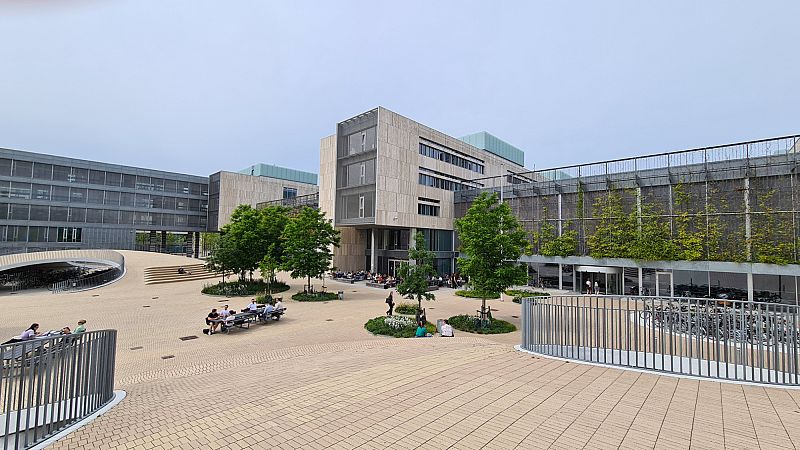Danish university to scrutinise international tech researchers amid spying concerns

One of Denmark’s leading universities is ramping up its scrutiny of potential researchers and students with ties to countries that national intelligence officials suspect are trying to spy on the Nordic nation.
In an intranet post, the University of Copenhagen announced new screening procedures for prospective collaborators, employees, and students to address “the growing espionage threat against strong Western research environments”.
The new measures target China, Russia, and Iran, which the Danish Security and Intelligence Service (PET) classifies as high-risk countries for espionage.
People from these countries will be subject to stricter vetting before they are allowed to enrol in or do research at the University of Copenhagen. Partnerships with researchers at universities in these countries will also be scrutinised.
“There is increasing uncertainty in the world, and we are reacting to the security and threat assessment prepared, among others, by the Danish intelligence institutions,” Kim Brinckmann, the university’s deputy director for research and information security, told Euronews Next in a statement.
Research security risks
The policy reflects a wider national concern about safeguarding strategically important technologies such as artificial intelligence (AI), quantum technology, semiconductors, and space technology.
Denmark’s Ministry of Higher Education and Science introduced guidelines in 2020 to try to prevent its universities from helping “autocratic states” build up their capacity in “sensitive areas” through international research collaborations.
In 2022, the ministry said in a report that it was concerned foreign actors were attempting to exploit academic openness in order to gain access to sensitive knowledge and technology.
“Both Danish and foreign intelligence services express that foreign states are increasingly attempting to unlawfully acquire knowledge, technology, and products that are important for Denmark’s competitiveness, or that may negatively affect security policy,” said the report.
The University of Copenhagen’s decision follows a similar move last year by another Danish research institution, Aarhus University. Aarhus University barred its researchers from working with three Iranian universities, saying Iran, China, and Russia have been “particularly aggressive in their attempts to gain illicit access” to Danish research.
The university said it would pay “special attention” to foreign collaborations on research topics that could be used in both military and civilian settings.
Danish authorities have referred to their Investment Screening Act to identify “critical” technologies that will get stronger scrutiny going forward.
In 2023, the European Commission also recommended that countries in the European Union assess their security risks related to four critical technology areas: advanced semiconductors, AI, quantum, and biotechnologies.
Mitigation measures may include restricted IT and physical access
Brinckmann said the new rules apply universitywide, but that she expects “it will have the greatest impact within the natural and health sciences”.
Under the new procedure, research projects that may be considered critical – for example, those on the Commission’s list of sensitive technology areas – should be assessed before the university enters into collaboration, employment, hosting, or enrolment involving people from the three high-risk countries.
“The new security procedures do not solve all problems, but they send an important signal about a changed approach to international research collaboration, where we need to be more closed and secure in some areas so that the university can continue to be open and accommodating in all the other areas,” Brinckmann said.
Professors, who often work on research projects with peers at other universities in Denmark and beyond, are also being asked to consider “whether the person being screened is closely affiliated with one of the high-risk countries”.
That includes people who have stayed in a high-risk country for more than six months, received funding from that country, or “substantially” published research with collaborators from there, according to the university’s rectorate.
Today

